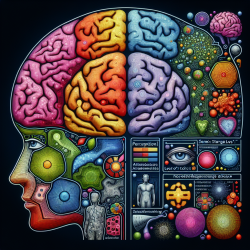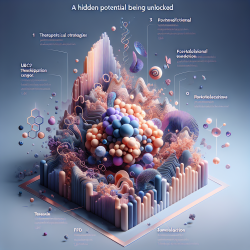Introduction
In the realm of caregiving, particularly for older adults with dementia or recovering from hip fractures, the integration of smart technology has opened new avenues for enhancing care quality and reducing caregiver burden. A recent study titled "Smart clothes-assisted home-nursing care program for family caregivers of older persons with dementia and hip fracture: a mixed-methods study" explores the potential benefits of smart clothes in home nursing care. This blog delves into the findings of this study and discusses how practitioners can leverage these insights to improve caregiving outcomes.
Understanding the Study
The study employed a mixed-methods approach to evaluate the impact of a smart clothes-assisted home-nursing care program on family caregivers and their care recipients. The program involved older adults with dementia and those recovering from hip-fracture surgery wearing smart vests equipped with sensors. These sensors transmitted data to homecare nurses via a mobile app, providing real-time information on the care recipient's activities and health status.
Key Findings
The study revealed several significant outcomes:
- Reduction in Depressive Symptoms: Family caregivers of persons with dementia experienced a significant decrease in depressive symptoms after one and three months of using the smart clothes program.
- Improved Caregiver Knowledge: The program enhanced caregivers' understanding of the care recipient's condition, enabling more informed caregiving decisions.
- Timely Interventions: Homecare nurses could provide timely interventions based on real-time data, enhancing the quality of care.
- Exercise Motivation: The program motivated care recipients to engage in regular exercise, contributing to their overall well-being.
- Work-Life Balance: Caregivers reported improved balance between work and caregiving responsibilities, thanks to the support provided by the smart clothes program.
Implications for Practitioners
For practitioners in the field of caregiving, the study's findings offer several practical implications:
- Adopting Technology: Embracing smart technology can significantly enhance caregiving quality and reduce caregiver stress. Practitioners should consider integrating such technologies into their care models.
- Training and Support: Providing training for caregivers on using smart technologies can maximize the benefits and ensure effective implementation.
- Further Research: While the study provides promising results, further research with larger sample sizes and diverse populations is needed to validate and expand these findings.
Conclusion
The integration of smart clothes in home nursing care presents a promising avenue for enhancing caregiving outcomes. By reducing caregiver burden and improving care recipient engagement, such technologies can play a pivotal role in modern healthcare. Practitioners are encouraged to explore and implement these innovations to foster better health outcomes for both caregivers and care recipients.
To read the original research paper, please follow this link: Smart clothes-assisted home-nursing care program for family caregivers of older persons with dementia and hip fracture: a mixed-methods study.










